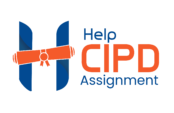7ICM Understanding and Implementing Coaching and Mentoring
- September 30, 2021
- Posted by: admin
- Category: CIPD Level 7

Coaching and mentoring are increasingly being used in organizations as strategies and approaches to professional and personal management development. Coaching and mentoring processes have become more common in professional practice and have received academic attention. On the other hand, professional research and writing have suggested that many issues, problems, and effective practices must be considered when using these processes and methods.
Purpose and Aim of Module
The research and writing raise unanswered questions about current coaching and mentoring practice, and this module promotes an evidence-based approach. This will allow the development of intellectual, social, and professional skills required to design, implement, and practice coaching and mentoring programs and services in the workplace. In addition, the implementation of these programs will improve organizational performance and personal development.
The unit also promotes the critical examination of simplistic and prescriptive accounts of mentoring and coaching to develop critical awareness and understanding of the potential and limitations of mentoring and coaching models, frameworks, and related theories.
The module investigates the implications for professional practice and requires students to critically reflect on the theory and practices from an ethical and professional standpoint. It also allows for applied learning and continuous professional development.
Who is Suited for this Module
This module is appropriate for students who:
- Have responsibility for human resources (HR) decision making at various levels of an organization, such as strategic, operational, and tactical.
- Have aspirations for a career in human resources and CIPD professional membership.
- Are independent or self-employed consultants who assist organizations in achieving their objectives
- Are HR professionals who work in a team or an HR functional management role and want to advance their careers?
- Have responsibilities and duties for HR functions and activities within an organization but lack a specialist function
What are the Learning Outcomes?
By the end of this unit, students should have learned how to:
- But, first, examine the various mentoring and coaching models and frameworks.
- Demonstrate and apply an informed and critical understanding of psychological theories and concepts that inform mentoring and coaching design and application. This may include a variety of theories related to learning, emotional intelligence, personal development, and the change and development of the organization.
- Design and implement organization-based coaching and mentoring strategies while keeping a wide range of contextual factors in mind.
- Provide an individual with skilled, professional, and effective mentoring and coaching services in various professional, personal, and professional contexts.
- Act professionally and ethically in mentoring and coaching practice, demonstrating a commitment to equality of opportunity and diversity, as well as continuous professional and personal development.
What is the Assessment Mode?
This module is graded in several different ways. First, summative assessment is used to achieve at least 50% of the learning outcomes. Second, the remaining learning outcomes are assessed through activities such as the ones listed below in terms of learning, teaching, and formative assessment.
- Assignments
- Integrated work activities
- Projects
- Presentations in groups and individually
- Reports
- Time-limited tests
- Examinations
- Exemplifications
In addition to these assessment methods, competency-based assessments may be used in centres that have been approved for this assessment approach and have occupationally competent assessors. Furthermore, approved CIPD centres may devise their assessment methods, but these must be approved before they can be used.


